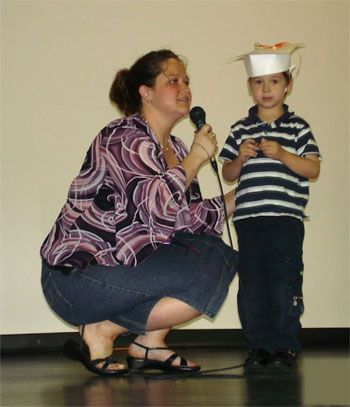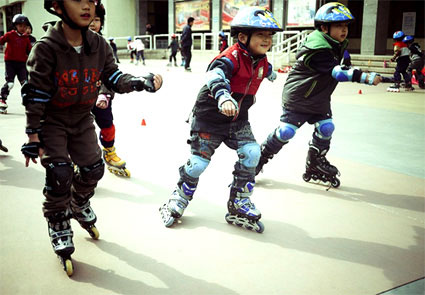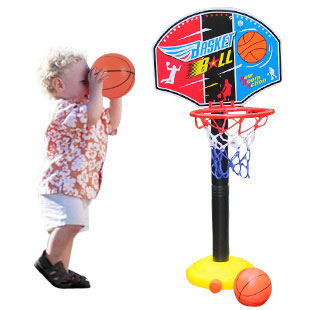
Follow the 10 strategies to reinforce positive behaviour in your child. Read on to find top 10 ways to encourage positive behaviour in children.Dealing with your child’s behaviour is one of the toughest jobs you go through as a parent. Every parent wants his or her child to behave well, be well mannered, and disciplined. No parents want their children to be aggressive or violent, whine frequently, interrupt when adults are talking, and argue back with adults. To avoid such negativities and instil positive behaviour in your kid, follow the given 10 ways.
1. Set Limits and Always Follow Them
Do not expect your kid to know what is wrong or right by himself or herself. It is your job to let your kid know what is allowed and what is not. You should set clear and simple rules, jot them down on a paper or you can use diagrams, and stick on fridge or cupboard. Be strict and consistent with the rules, otherwise your kid will not take the rules seriously and can break them. To be a role model you should follow these rules too.
2. Set Logical Punishment
When your child breaks rules, you shall not lose your mind or spank. You shall set logical consequences earlier for the rules if broken or take away the privileges for a limited period. If your
kid watches TV without finishing his or her
homework, then if you decide to put the TV off for the whole day or week, you shall follow the same.
3. Encourage and Praise
Always remember that your child needs your attention. You should not limit your attention to your child’s misdeeds; you should also catch him or her doing well. Notice and compliment your child’s positive behaviour regularly. Your child will learn positive ways to get your attention if you
praise for something he or she does that you want.
4. Make It Easy to Behave
Engage your kid to do something else if you do not want him or her to do a certain thing. It is better than saying “no” every time and getting into conflicts. Always try to give a reason why he or she shall not do the thing. Also, praise saying thanks and how much he or she was helpful when he or she does something that helps you. This helps your child to understand what to do and what not.
5. Offer Limited Choices
Allow your child make decisions when possible. Offer him or her with limited choices like whether he or she wants to listen to a story or a song before sleeping. The choice is regarding story or song, but not whether going to bed or not.
6. Use Good Communication
Use positive words for getting things done, such as “Please pass me the clothes from the basket”. Teach your child to say “thanks” when he or she get help from someone else.
Teach your kid to say “sorry” if he or she does anything wrong unintentionally.
Prepare your kid for what is coming. Kids find it hard to stop something they are doing. So always give your child a time-limit to change things instead of just asking him or her to stop what he or she is doing so that he or she gets ready.
8. Talk to Your Child About Feelings
Ask your child what he or she feels about himself or herself or others or you. Also, tell your child honestly how his or her behaviour affects you. This helps your kid to see his or her own feelings in yours. This enhances empathy in your kid. Also, such discussions give your kid the chance to understand things from your point of view.
9. Give Your Child Household Chores
Ask your child to help you in household chores when he or she gets a little older. This will help him or her understand what you do and also will inculcate responsibility in him or her.
10. Do What You Say
Actions speak more than words – your child will follow how you talk, what you do, etc. You always have to be the role model. You must follow the same what you ask your child to do. Otherwise he or she will be confused, and will not be sure to follow what you ask him or her to do.
Never misbehave,
hit or spank your kid. That does not leave a good impact. Do not expect illogically as kids take time to learn and follow. Never threat your kid as that does not work. Always avoid inconsistencies, do what you have told, follow what you have said.
How to reinforce positive behaviour in children? How to set rules for promoting positive behaviour in children? What to do if children break discipline rules? Discuss here.






























